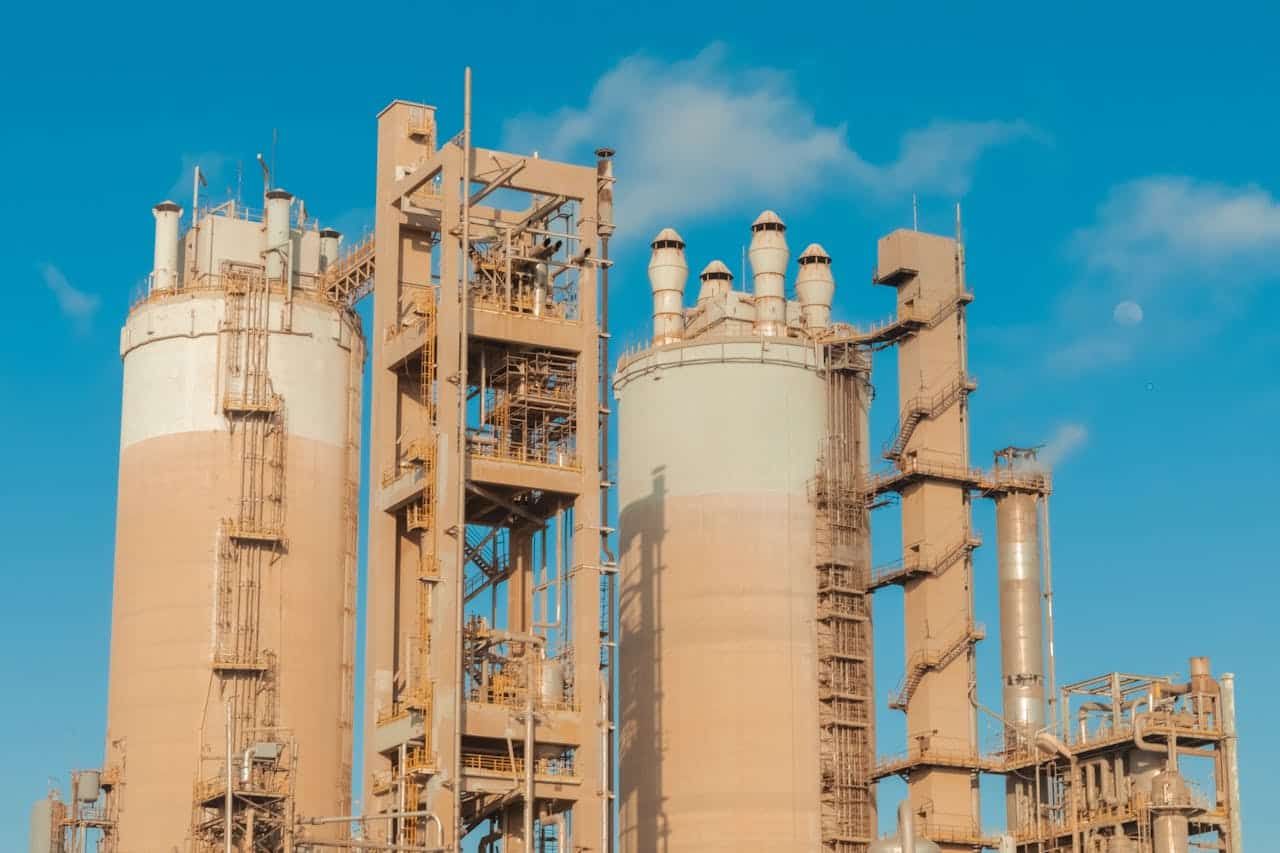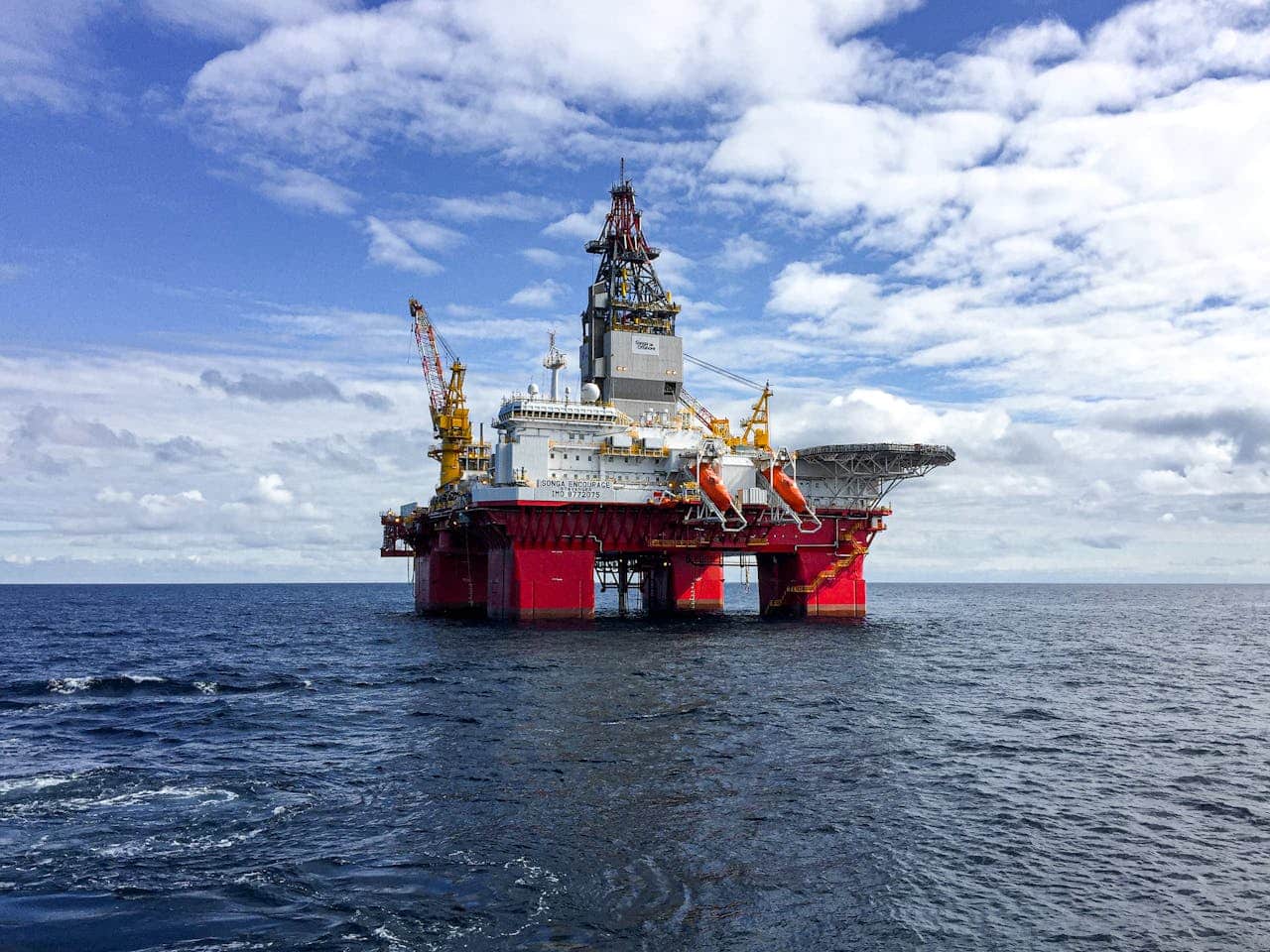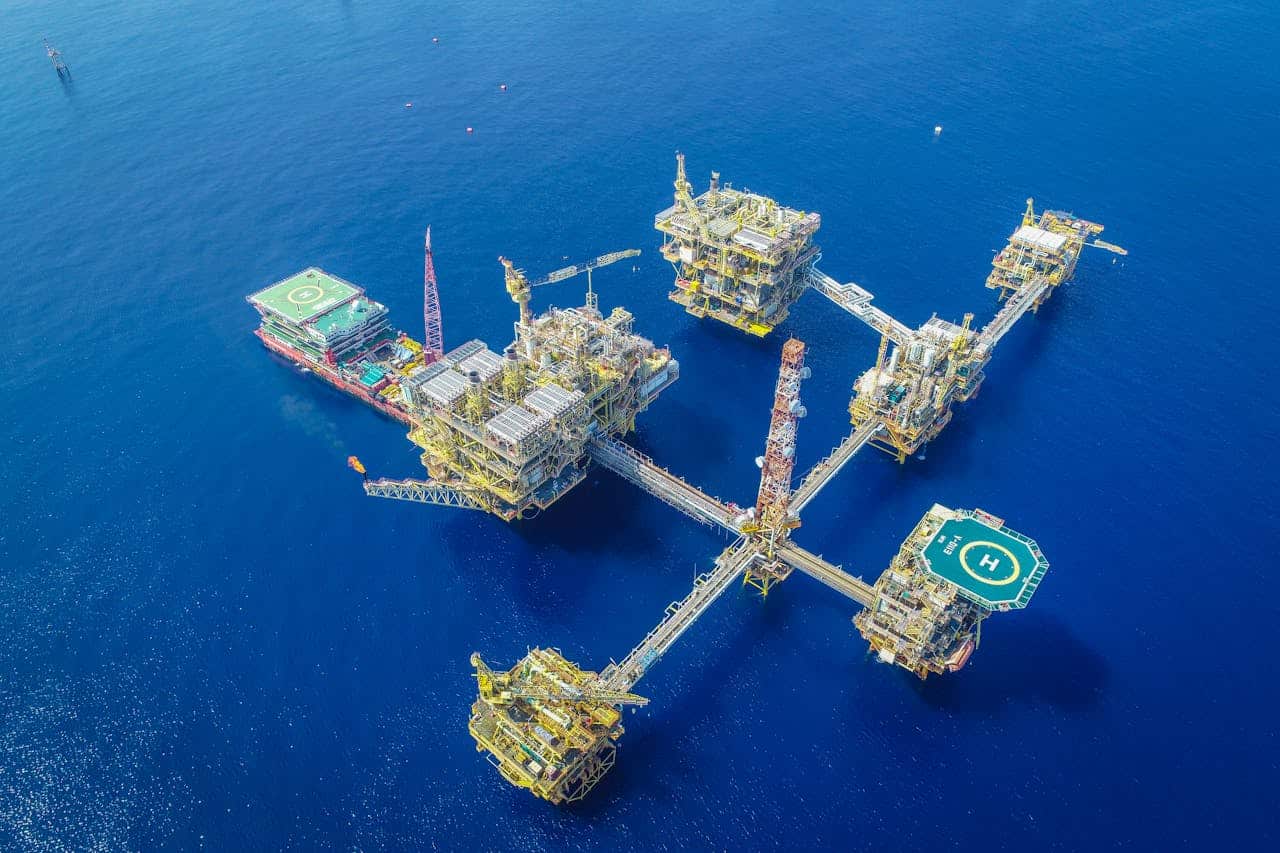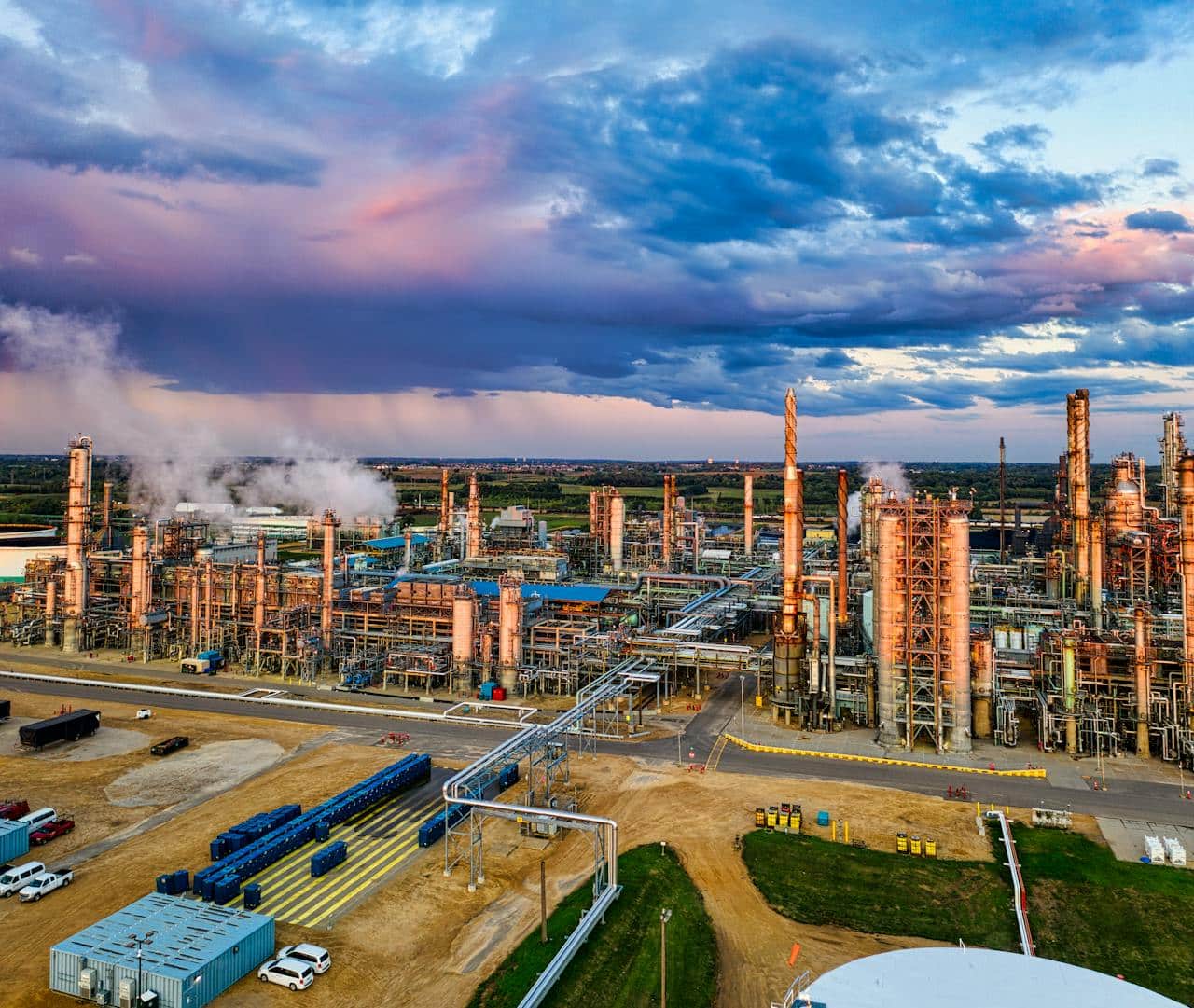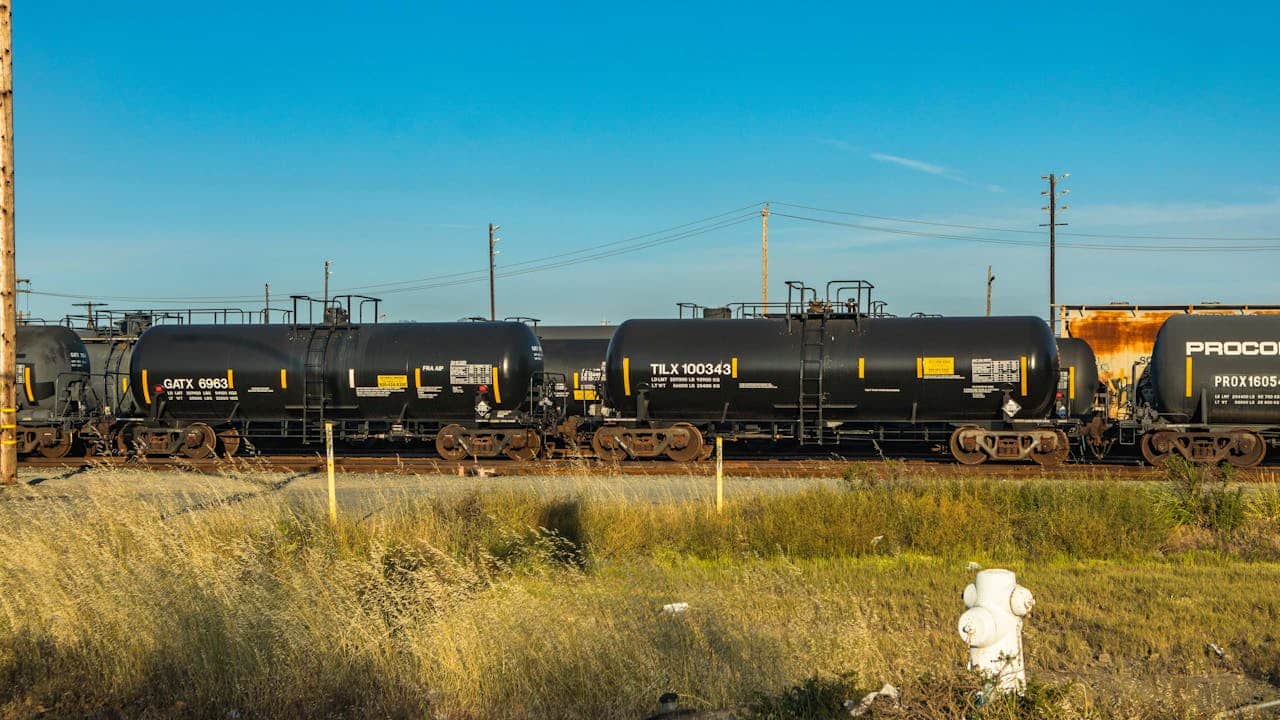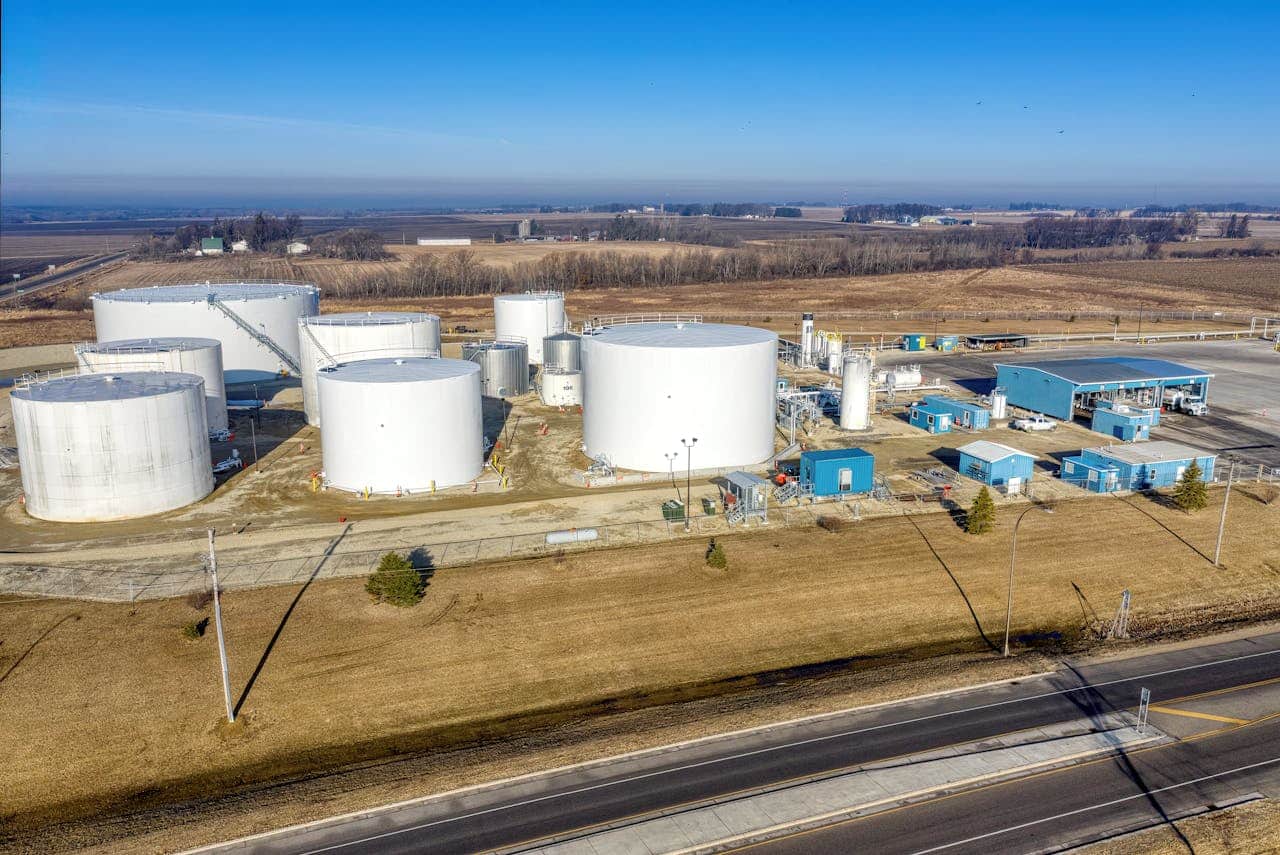Aviation Fuel Hydrant Systems and Mooring Facilities
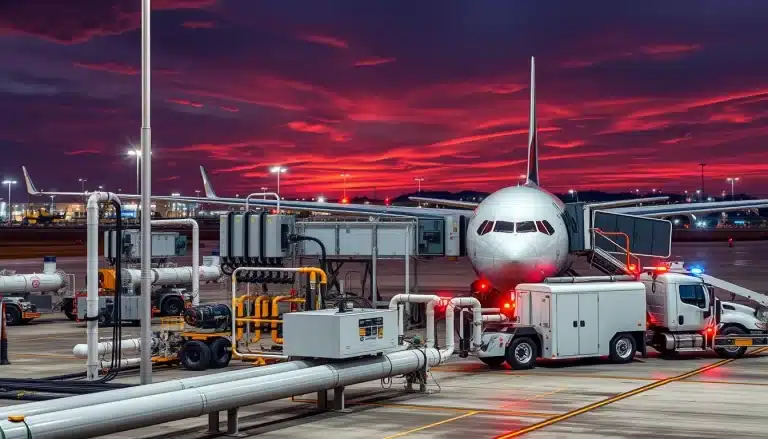
| Date | Format | Duration | Fees (USD) | Register |
|---|---|---|---|---|
| 24 Nov - 12 Dec, 2025 | Live Online | 15 Days | $11515 | Register → |
| 15 Dec - 23 Dec, 2025 | Live Online | 7 Days | $5075 | Register → |
| Date | Venue | Duration | Fees (USD) | Register |
|---|---|---|---|---|
| 24 Nov - 28 Nov, 2025 | Riyadh | 5 Days | $5775 | Register → |
| 08 Dec - 10 Dec, 2025 | Al Khobar | 3 Days | $4485 | Register → |
Did you know that inadequate maintenance of aviation fuel hydrant systems can lead to catastrophic incidents, jeopardising both safety and operational efficiency? For instance, a fuel leak caused by aircraft fuel system defects or mishandling during the fuelling process can result in severe accidents, including fires under the vehicle’s driver cabin.
Course Overview
The Aviation Fuel Hydrant Systems and Mooring Facilities course by Alpha Learning Centre is meticulously designed to provide a comprehensive understanding of modern techniques and equipment used in airport fuel distribution and aircraft mooring. This course focuses on the strategic aspects of designing, operating, and maintaining hydrant systems and mooring facilities to ensure safe, efficient, and environmentally sound solutions for fuel storage, distribution, and aircraft parking.
The course covers a wide array of activities including advanced hydrant system design, fuel quality control, automation systems, maintenance protocols, and mooring system design. It addresses the growing need for expertise in handling complex aviation infrastructure problems, integrating cutting-edge technologies, and making data-driven decisions in various operational environments.
Why Select This Training Course?
Selecting this Aviation Fuel Hydrant Systems and Mooring Facilities course offers numerous advantages for professionals involved in airport operations and fuel management. Participants will gain advanced knowledge of fuel distribution systems, safety protocols, and modern mooring techniques. The course provides hands-on experience with state-of-the-art hydrant systems and mooring equipment, enabling attendees to optimise airport operations effectively.
For organisations, investing in this training enhances overall operational efficiency and reduces safety risks. By ensuring that personnel are well-trained in fuel management protocols, organisations not only protect their assets but also build sustainable practices. Research shows that the global aviation fuel market is projected to grow from USD 431.70 billion in 2024 to USD 819.73 billion by 2032, highlighting the increasing importance of skilled professionals in this expanding sector. Additionally, with the aviation industry’s focus on safety and efficiency, organizations implementing comprehensive fuel management systems experience significant improvements in operational efficiency and reduced incidents through automated and optimized fuel distribution systems.
Individuals who complete this course will benefit from enhanced career prospects as they become more valuable assets in their respective fields. The skills acquired through this training can lead to professional growth and increased responsibilities within their organisations. Studies indicate that with the global aviation fuel market expected to reach USD 307.6 billion by 2030, the demand for skilled professionals in aviation fuel systems continues to rise.
Transform your aviation fuel management capabilities – Register now for this critical advanced training programme.
Who Should Attend?
This Course is Ideal for:
- Aviation fuel system engineers
- Airport operations managers
- Maintenance technicians
- Safety compliance officers
- Quality control specialists
- Project engineers
- Facility managers
- Environmental compliance officers
- Construction supervisors
- System design engineers
What are the Course Objectives?
The objectives of this training course are to enable professionals to:
- Master hydrant system operations and maintenance
- Develop expertise in safety protocols
- Perfect troubleshooting techniques
- Enhance system design capabilities
- Acquire emergency response skills
- Strengthen quality control procedures
How will this course be presented?
The Aviation Fuel Hydrant Systems and Mooring Facilities course by Alpha Learning Centre employs a comprehensive and innovative approach to ensure maximum knowledge retention and skill development. The course utilises:
- Interactive workshops with state-of-the-art simulation systems
- Virtual reality simulations for practical demonstrations of hydrant operations
- Hands-on equipment training
- Case study analysis of real-world scenarios
- Field demonstrations
- Technical workshops for in-depth understanding
- Group exercises to promote collaborative learning
- Practical assessments to evaluate skill development
This multi-faceted approach ensures that participants not only grasp theoretical concepts but also gain practical skills necessary for effective management of aviation fuel hydrant systems and mooring facilities.
Join us now and elevate your expertise in aviation infrastructure to new heights!
Course Syllabus
Module 1: Advanced Hydrant System Design
- Hydraulic design principles and calculations
- Pipeline network configuration
- Pump station design and optimisation
- Pressure control systems
- Filtration system design
- Emergency shutdown systems
- Leak detection technologies
- Cathodic protection systems
- Environmental protection measures
- Smart monitoring integration
Module 2: Fuel Quality Control Systems
- Advanced filtration techniques
- Contamination detection methods
- Quality monitoring equipment
- Sampling procedures and protocols
- Water detection systems
- Microbiological control measures
- Laboratory testing procedures
- Real-time quality monitoring
- Documentation and reporting systems
Module 3: Control and Automation Systems
- SCADA system implementation
- Remote monitoring capabilities
- Flow control automation
- Pressure management systems
- Emergency shutdown protocols
- Data acquisition systems
- Interface with airport systems
- Smart valve control systems
- System redundancy design
- Real-time monitoring solutions
- Cybersecurity measures
Module 4: Maintenance and Inspection
- Preventive maintenance strategies
- Condition monitoring techniques
- Pipeline inspection methods
- Valve maintenance procedures
- Cathodic protection maintenance
- Documentation systems
- Testing and certification
- Performance monitoring
Module 5: Safety and Environmental Systems
- Leak detection technologies
- Environmental monitoring systems
- Emergency response protocols
- Spill containment methods
- Vapour recovery systems
- Fire protection systems
- Safety interlocking mechanisms
- Risk assessment procedures
- Personnel safety equipment
- Environmental compliance measures
Module 6: Mooring System Design
- Load calculation methods
- Structural design principles
- Material selection criteria
- Environmental considerations
- Safety factor determination
- Installation procedures
Module 7: Operation Protocols
- Start-up procedures
- Shutdown sequences
- Emergency procedures
- Quality control checks
- Performance monitoring
- Documentation requirements
- Personnel training
- Safety protocols
- Maintenance scheduling
Module 8: Testing and Commissioning
- System pressure testing
- Flow rate verification
- Safety system validation
- Control system testing
- Documentation procedures
- Certification requirements
- Performance validation
Module 9: Troubleshooting and Repair
- Fault diagnosis techniques
- Emergency repair procedures
- System isolation methods
- Performance recovery
- Documentation requirements
- Quality assurance checks
- Root cause analysis
- Preventive measures
Module 10: Advanced Monitoring Systems
- Digital twin implementation
- IoT sensor networks
- Real-time data analysis
- Predictive maintenance
- Performance optimisation
- Remote monitoring capabilities
- Asset management systems
- Machine learning applications
- Condition monitoring
- Data visualisation
- Reporting systems
Module 11: Risk Management
- Hazard identification methods
- Risk assessment techniques
- Mitigation strategies
- Emergency planning
- Business continuity
- Insurance requirements
- Compliance monitoring
- Documentation systems
- Stakeholder management
Module 12: Future Technologies
- Smart system integration
- Artificial intelligence applications
- Sustainable fuel considerations
- Advanced materials
- Automation developments
- Digital transformation
- Environmental innovations
- Energy efficiency measures
- Regulatory trends
- Technology roadmap
Module 13: Asset Performance Analytics
- Machine learning algorithms
- Performance prediction models
- Efficiency optimisation techniques
- Data-driven decision making
- Maintenance forecasting
- Cost-benefit analysis
- Asset lifecycle management
- System reliability metrics
- Real-time performance dashboards
- Historical data analysis
- Trend identification methods
Module 14: Regulatory Compliance and Standards
- International aviation standards
- Environmental regulations
- Safety compliance requirements
- Quality management systems
- Documentation protocols
- Audit preparation methods
- Certification processes
- Training requirements
- Performance benchmarking
- Continuous improvement strategies
Module 15: Advanced Corrosion Management
- Corrosion monitoring techniques
- Material degradation analysis
- Protective coating systems
- Cathodic protection optimisation
- Chemical treatment programs
- Inspection methodologies
- Life prediction models
- Failure analysis procedures
- Environmental impact assessment
- Documentation requirements
- Risk-based inspection planning
Module 16: System Integration and Optimization
- Cross-system communication protocols
- Interface management strategies
- Performance optimisation algorithms
- Energy efficiency measures
- Resource allocation systems
- Capacity planning tools
- Operational synchronisation
- Emergency response coordination
- Real-time system balancing
- Integration with airport operations
Training Impact
The impact of aviation fuel hydrant systems training is evident through various real-world case studies and data. The global aviation fuel market was valued at USD 391.23 billion in 2023 and is projected to grow to USD 819.73 billion by 2032, exhibiting a CAGR of 8.35%. This growth underscores the critical importance of proper fuel management systems and training.
Research indicates that the aircraft fuel systems market is expected to reach USD 19.36 billion by 2034, growing at a CAGR of 6.8% from 2024 to 2034. This significant market expansion demonstrates the increasing demand for skilled professionals in aviation fuel systems management.
These case studies highlight the tangible benefits of implementing advanced aviation fuel infrastructure:
- Improved safety and efficiency in fuel distribution
- Enhanced environmental performance through reduced emissions
- Increased operational efficiency in aircraft turnaround times
- Reduced incidents of fuel-related accidents
Expand your expertise in aviation infrastructure – enrol in our course today!

